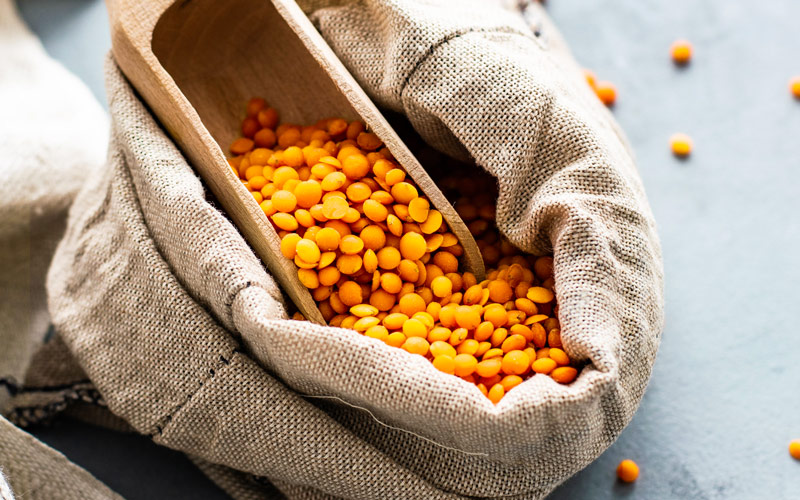So, what will it be like come December 2024?

The British food industry commences 2024 with much less upward price pressure than it was enduring a year ago, when on some measures, not least the rather flaky ONS version, was speaking to close to 20% UK food inflation. Year-on-year (YoY), that position has markedly improved with the UK ONS Consumer Price Index (CPI) commencing 2024 at c4% with food inflation in high single digit territory.
For the domestic economy, inflation has been the central metric driving business models in recent times as firms considered how much of their own cost of goods and operating expense increases they could pass on and at what impact such activity had for sales volumes, mix and so gross and net margins. The moving parts have been considerable with UK industry volumes in the current inflation cycle falling for the best part of two years, a material switch out of proprietary brands into private label, circa 5 pts, and unnatural footfall channelled to the limited assortment discount chains as shoppers managed their household budgets.
Inflation within a 1.0-5.0% range, roughly, is manageable for most food systems, arguably in Goldilocks territory; not too little, not too much for shoppers. However, when it is rising above 10% on an ongoing basis (overall UK CPI peaked at over 10% in October 2022), then it is far from manageable and the consequences within industrial systems emerge, as was the case outlined for the UK food sector above.
Of course, inflation is also something that central banks must seek to control. Indeed, in the UK, it is the core function of the Bank of England (BoE) and its Monetary Policy Committee (MPC). Alas, the MPC has struggled to understand inflation, which is a little unfortunate to say the least, and so missed the factors that drove prices up in 2021-22. Indeed, the Bank has, remarkably, commissioned reports into why its forecasting is so poor, something not just the skill-set of the central bank; the Office for Budget Responsibility (OBR) could do with some tutoring too. Whilst academic now, few ask the question of where would inflation have peaked if the MPC and the BoE did not have their heads up their backsides for so long.
All this unfortunate ignorance has had consequences, however, with the BoE deciding to raise UK base rates at just about the steepest gradient ever, increasing from 0.1% to 5.25% in just 18 months. The economic impact of those base rates is still coming through as 2024 commences. However, with UK ONS CPI at a lower level, the discussion in financial markets is when will a cut occur? Second guessing the MPC requires the mindset of Monty Python, noting that three members voted to increase rates at its December meeting, lunacy, but I expect a gradual decline process, not least because of the scarring of the inflation elevation period.
By the end of 2024, I expect UK ONS CPI to be between 2.5-4.5%, so still hanging around, not least fuelled by British Government actions on duty, which seemed to catch forecasters out in December, amazingly, the National Living Wage (10%) and business rates (c7%). Food inflation is also expected to be within such a range, so low to mid-single digit, which means potentially Goldilocks territory.
Such price appreciation is set within a wider UK economy where living standards are rising, employment remains fulsome and the housing market is displaying remarkable resilience, more so than I expected in 2022. Unemployment may nudge higher in 2024, vacancy rates are easing a little, but is unlikely to exceed 5%, despite the spurious estimates of the BoE and the OBR, in a still tight labour market where many able-bodied folks do not seem able or to want to work.
The British Chancellor of the Exchequer, presently Jeremy Hunt, is expected to deliver tax cuts in some form in his 6 March Budget, which may lead the BoE to underscore its determination to control inflation to its spurious 2% target; a 1.0-3.0% range would be much more sensible, and there could be political fireworks. Alongside the rise in the NLW and the January 2024 cut in employees National Insurance Contributions (NIC), however, those working should increasingly feel a little more flush, all of which should support consumer confidence, which is nudging better since the dark days of the crazy Truss. As such, the outlook for the UK consumer economy is reasonable. Yes, labour costs are rising and debt costs are high, but matters are more stable, so predictable, and the basis for gradual improvement to household budgets appears sound as the likely November General Election comes closer, remember too that savers earn interest receivable.
All this macroeconomic stuff is highly relevant to the British food system. With food inflation easing, it is reasonable to expect an ongoing improvement in the volume and mix factors, which have the basis to assist sales values, gross margins and coverage of operating expenses (positive operational gearing). Indeed, for a number of supermarkets gaining market share as 2023 came to a close, volume gains were emerging and unnatural trade to the limited assortment grocery discount chains showed signs of easing evidenced by Aldi GB reporting negative same store volumes in December and the low single like-for-like (LFL) quarterly sales achieved by B&M Stores and Poundland.
Of course, high base rates have also materially conditioned the financial prospects of all businesses with high levels of debt. In the case of the British supermarket scene, high leverage is a feature of firms representing c40% of market share – Asda, Co-op, Iceland, Morrisons and Waitrose – and servicing those costs is constraining business strategy and performance, reinforcing a central expectation that the UK grocery scene will continue to be very competitive, but broadly rational too. More broadly, it will be interesting to see if such high debt levels lead to corporate change in 2024/25.
The UK General Election is likely as things stand to see an adjustment in administration, albeit a week is a long time in politics and all that. And the British vote sits amongst a plethora of plebiscites across the globe, most notably the USA, where the remarkable Mr Trump is on a roll as 2024 commences. The US Election will notably condition the economic outlook for the world and more into 2025 and beyond in a number of ways not least US policy towards China, the Middle East and Russia-Ukraine.
Predicting the geopolitical outcomes remains far from straightforward but the consequences continue to be quite profound for those on the ground as well as wider economic metrics such as commodity prices, including gas & oil, and social factors such as the movement of people. At the start of 2024, the global geopolitical scene is quite fragile with scope for contagion in the Middle and Far East whilst a stalemate persists in Eastern Europe from a military perspective but the scope for NATO and Russia to rumble is not impossible or especially comfortable for British industrial systems.
Finally, on a different stance on the impact of a higher base rate environment, where 3.0-4.0% feels the new norm, it also means that the dynamics of merger & acquisition (M&A) activity also adjusts. For the highly indebted, valuation multiples come under pressure whilst there is a rebalancing of sorts between purely financial buyers (e.g., private equity and family office funds) and the trade. Indeed, that rebalancing should make trade deals more likely, especially where synergies are available. Hence, for businesses with strong balance sheets, M&A is likely to be rising up the strategic agendas as reality dawns on firms that must sell due to leverage and refinancing constraints.
Core business principles are, as ever, likely to remain at the fore of the successful of the large British food system. So, a clear understanding of the potency or otherwise of an assortment, a good grasp of product pricing, strong client relationships, high standards of execution and a clear focus upon cost leadership. With respect to the latter, this is where Mark Dudley and his team at Coriolis come in, with practical diagnostics, clear communication and positive change; maybe give him a call if you need to discuss self-improvement.
Dr Clive Black
Senior Advisor
Coriolis Limited
January 2024








